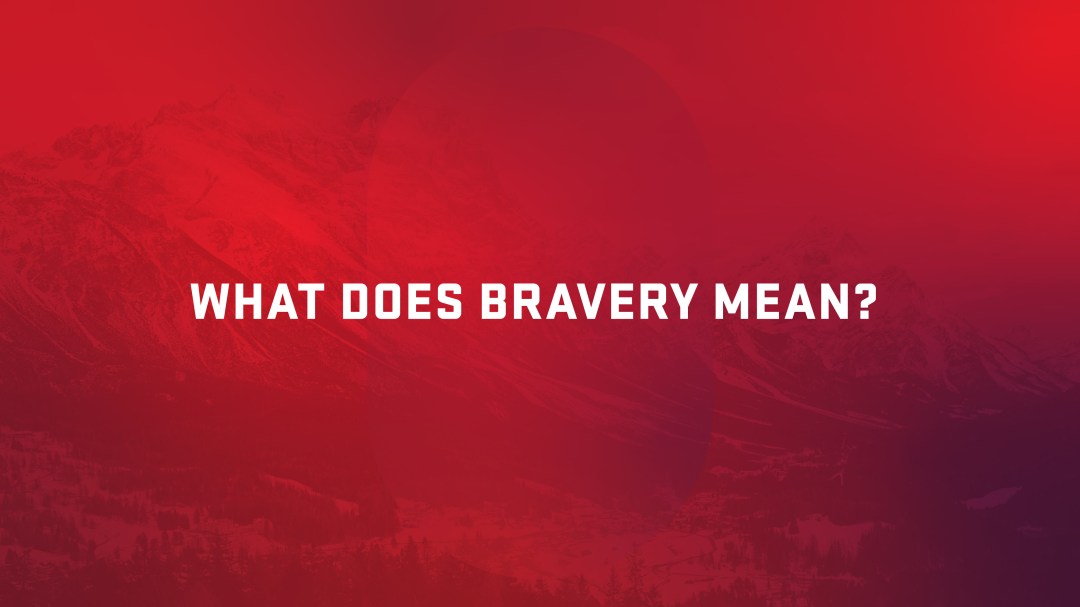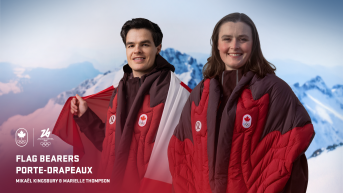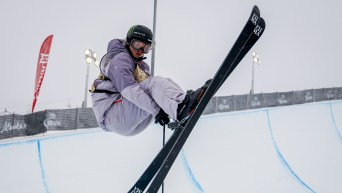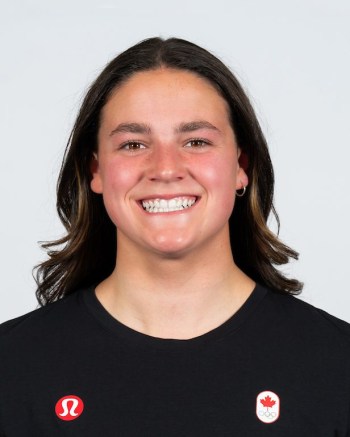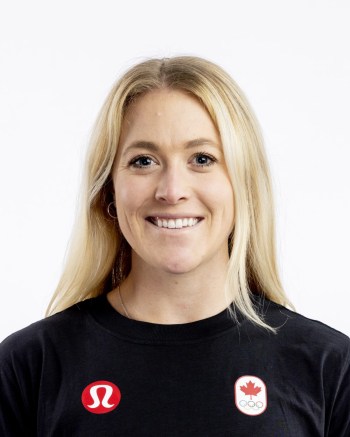What does bravery mean to Team Canada athletes?
The pursuit of big goals takes bravery, but there is no single correct way to be brave.
We asked Team Canada athletes—what does bravery mean to you?
There are some common themes that emerge; bravery isn’t the absence of fear, bravery can be just showing up, bravery can be letting go, or asking for help.
But what is clear is that Brave is Unbeatable.
Embyr Lee Susko (Luge)
I really live by the saying: do it scared. I’m a scaredy cat for a lot of things. Luge scares me a lot of the time. Being brave is doing it scared, for me. You’re going to miss out on so much if you’re just living in fear.
And I would never be doing luge if I didn’t be brave and just go down that track one more time, one more time. Get back up and go again. I think being brave really defines me as an athlete.
Madeline Schizas (Figure Skating)
I think it means facing the uncomfortable with grace, and a good attitude.
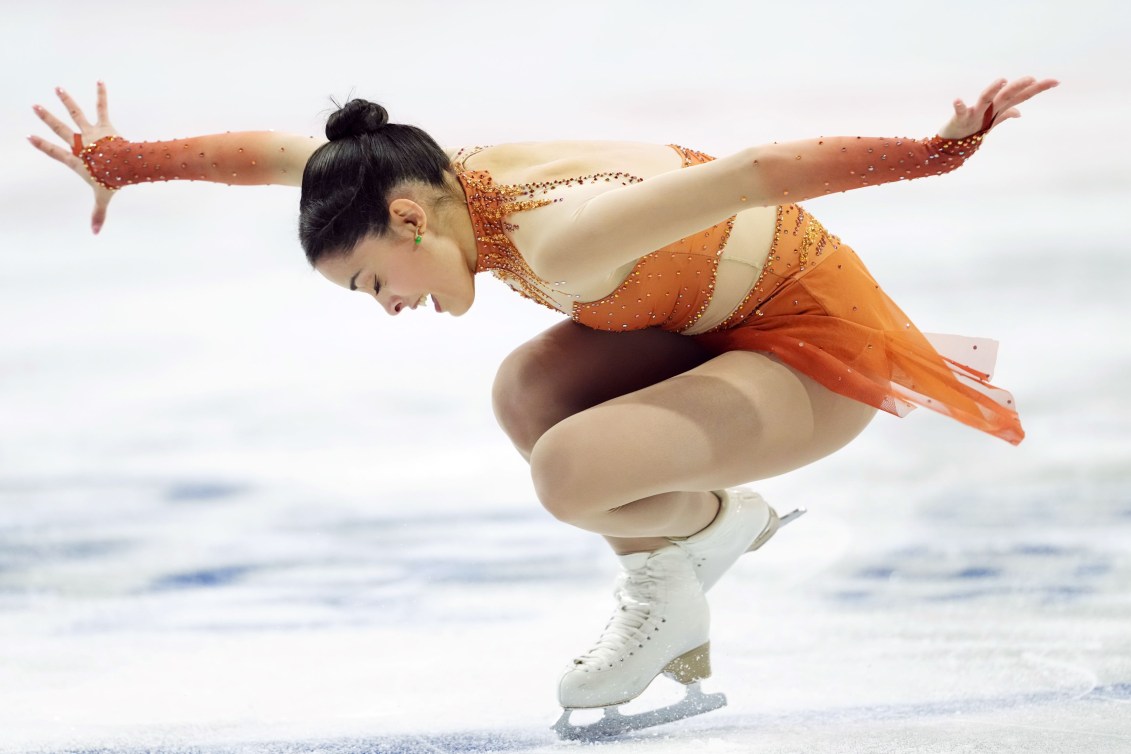
Hallie Clarke (Skeleton)
What I learned this year [is that] bravery can be asking for help. It comes from a wide range of things, and I just think doing something that you know is the right thing to do, even if it’s terrifying, is really what bravery is to me.
Trinity Ellis (Luge)
Bravery to me is feeling fear and doing it anyways. I mean, I guess that’s kind of the notion of bravery, but in our sport, that’s a huge part of it. And maybe the most valuable thing I’ve learned from luge is that you will feel fear—but knowing that you are capable of doing it anyways.
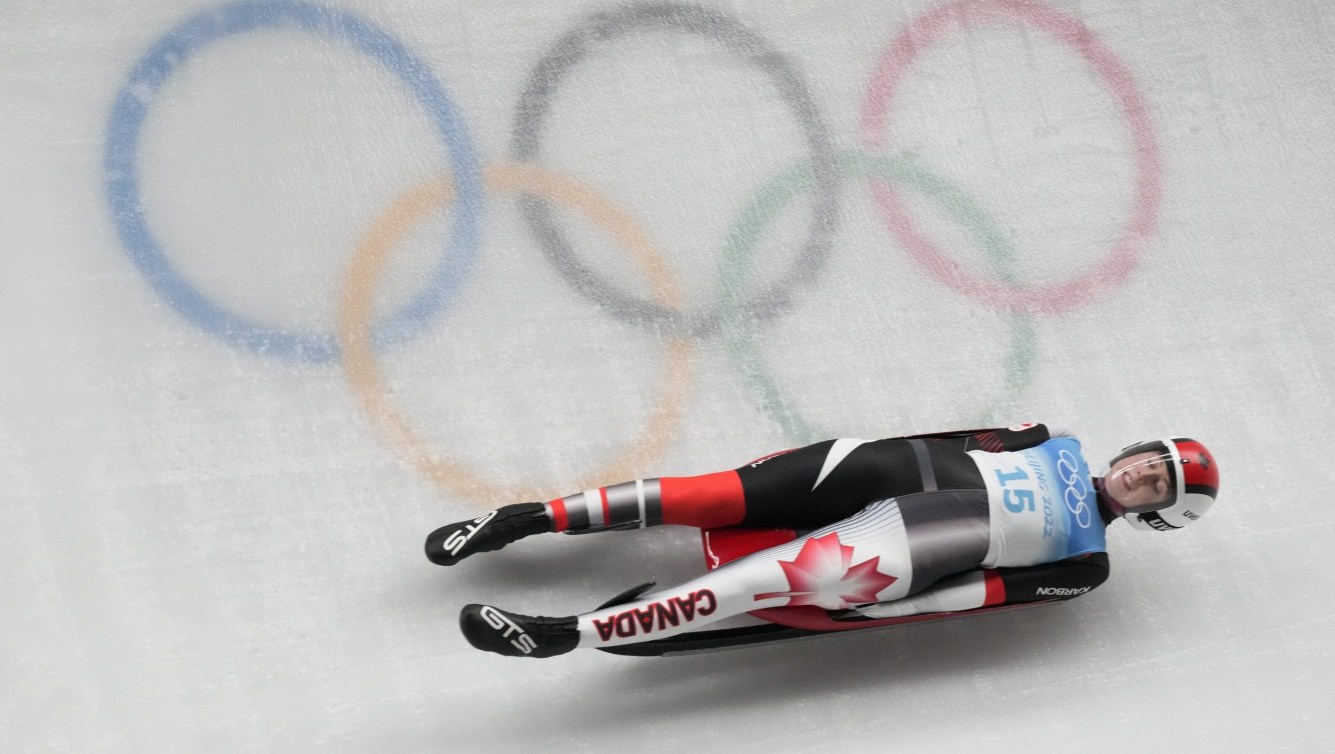
Kristen Bujnowski (Bobsleigh)
I think there’s something really powerful about continuing to do something that scares you for so long that you become competent at it. Then you’re like, “Oh, this thing that used to terrify me, I’m actually getting good at!” That’s a metaphor for life.
Brodie Seger (Alpine Skiing)
I’m in a sport where it takes a certain level of courage and bravery when you get in that start gate. But I know what kills me the most inside is when I have a run where I really, really want it and I just hang on a little too hard, and I overdo it, I force it a little bit too much.
You get to the bottom and you feel like you didn’t really let go and let yourself perform. And I believe it takes bravery to set aside the “squeezing too hard to make it happen” mentality, and instead say “I’m going to let go, lean into the challenge, take some risks, and I get to see what happens.”
Ivanie Blondin (Long Track Speed Skating)
Bravery is being able to show up every day whether you’re feeling great or not great, and still going out there and giving yourself the opportunity to still perform and be the best that you can be on that day.
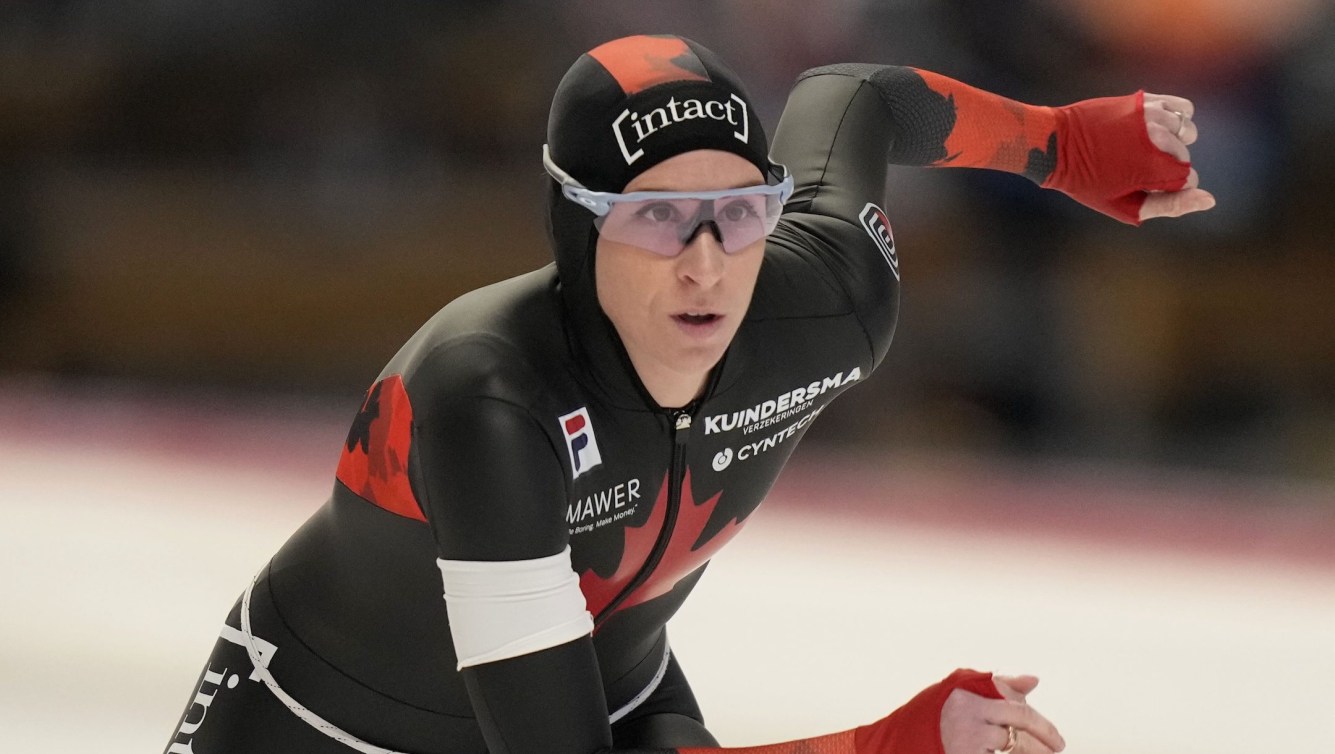
Valérie Maltais (Long Track Speed Skating)
To me, I think, bravery is showing up on the line in that bare skin suit of ours. Whether you’re in good shape, you don’t feel good, you feel bad, or you’re in great shape, I think you need to be brave to show up on the line and show up and do a long distance.
It can go bad from your first step or it can go great from the start, too. So you need to just pump up your chest and just be like, all right, this is it. This is the moment. And when they say go, there’s no turning back.
Brooke D’Hondt (Snowboard – Halfpipe)
I think bravery to me just means stepping up to the plate. In those moments when you’re scared or when you’re about to drop in for your run…just being able to step up and show up in that moment.
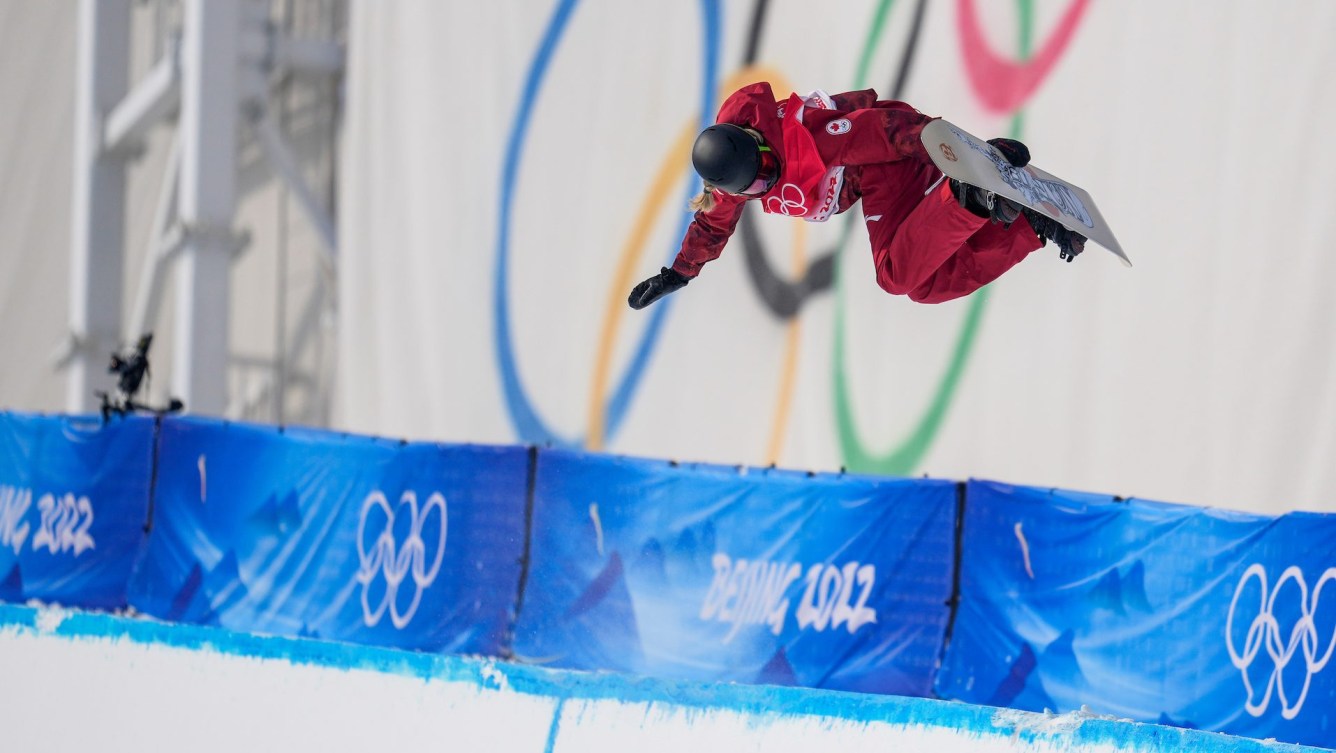
Florence Brunelle (Short Track Speed Skating)
I would say being brave is taking responsibility for what’s happening in your life and having the courage to acknowledge it and take action.
Jocelyn Peterman and Brett Gallant (Curling)
BG: I think it’s just not being afraid to fail. I think any world championship or Olympic Games or time you’re representing that bigger country, there’s a certain level of fear of: “is what I produce in this event going to be good enough?” And I think being brave is just saying, well, I’ve put the effort in over the course of the years, I’ve trained as hard as I can, put my best foot forward, and I’m just gonna leave everything out on the ice and be proud of that.
JP: When we’re pushing ourselves and we’re trying to compete at the highest level, it is scary. And we work hard at controlling those emotions and being able to perform our best in those moments. I guess that is bravery, being vulnerable and putting yourself out there and giving it your best in front of so many eyes and chasing your goals.
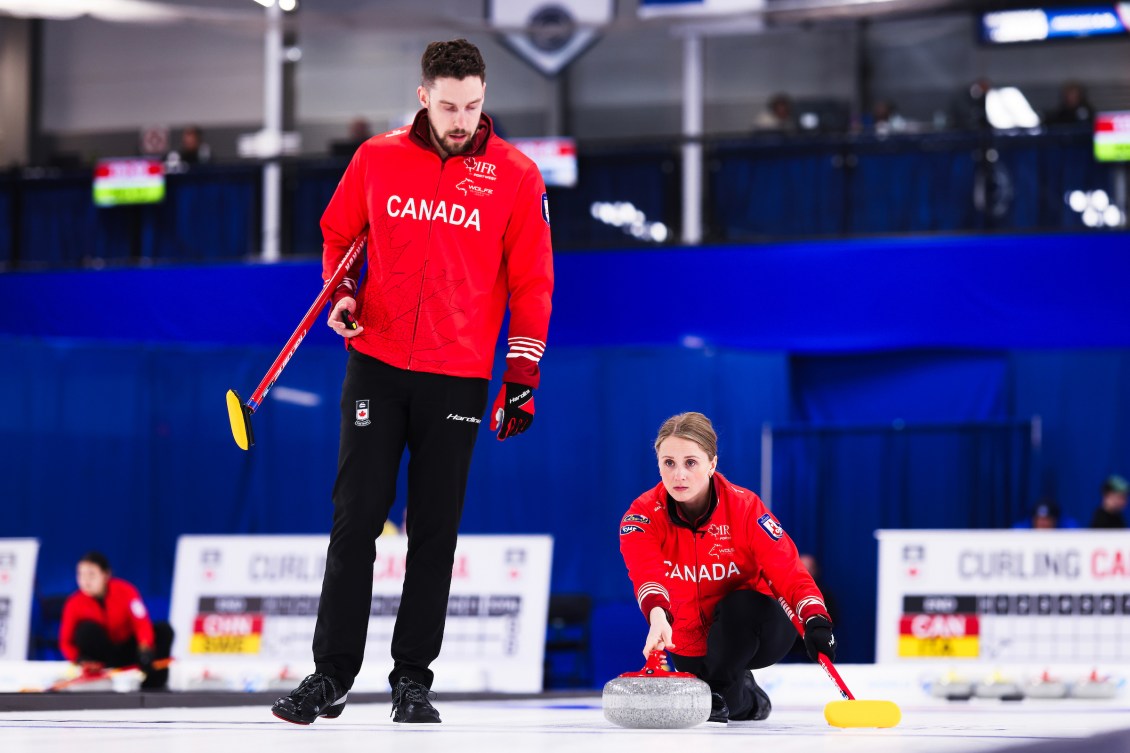
Louis David Chalifoux (Freestyle Skiing – Moguls)
I think bravery is all about challenging yourself, being able to know your limits and being able to actually try to push past those limits. It’s the only way you can really improve. Get out of your comfort zone. That’s bravery for me.
Lewis Irving (Freestyle Skiing – Aerials)
To me, being brave means acknowledging your fears and then doing it anyway—not letting your doubts or your fears hold you back. Being brave doesn’t mean not being scared, it just means not letting your fear paralyze you.
Danaé Blais (Short Track Speed Skating)
For me, bravery is to not be afraid to win, but also not be afraid to lose. Being brave enough to try to win each race and not just trying to avoid losing.

